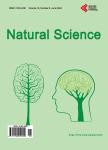Role of mycorrhiza to reduce heavy metal stress
Role of mycorrhiza to reduce heavy metal stress作者机构:Department of Microbiology University of Haripur Haripur Pakistan Medical Laboratory Technology Department University of Haripur Haripur Pakistan
出 版 物:《Natural Science》 (自然科学期刊(英文))
年 卷 期:2013年第5卷第12期
页 面:16-20页
学科分类:1002[医学-临床医学] 100214[医学-肿瘤学] 10[医学]
主 题:Mycorrhiza Heavy Metal Stress Phytoremediation AM Fungi Antioxidant Enzymes
摘 要:Plants have a system of antioxidant enzymes, which helps to alleviate the effects of various types of stresses. Heavy metals like Cadmium and lead are tolerable for plants to certain extent. The antioxidant enzymes do not function properly at higher concentrations of Cadmium, lead and some other heavy metals. The activities of antioxidant enzymes are reduced due to reactive oxygen species produced as a result of heavy metal stress. The catalase activity was directly inhibited by O2- (Kono and Fridovich, 1982). These ROS are O2-, H2O2, and -OH which can react with many other biomolecules. Several metallic ions are produced by radical displacement reactions. These metallic ions inhibit the activity of antioxidant enzymes. Hence, enzymic antioxidant defense system of plants is affected and adversely inhibits plant growth and productivity. Mycorrhizal fungi are important in phytostabilization of toxic heavy metals. Plants having mycorrhizal association accumulate metallic pollutants by storing these heavy metals in Vesicles as well as in fungal hyphae in their roots, hence these metallic pollutants are immobilized and do not inhibit the growth and uptake of phosphorus and some other micronutrients. Mycorrhizal fungi also release various organic acids which increase the solubilisation of insoluble phosphate compounds present in soil. The unavailable forms of phosphorus are converted into available forms as a result of organic acids produced by fungi. AM fungi release glomalins that are certain metal sorble glycoproteins which increase the immobilization of toxic metals. Another protein is metallothionine released by certain AM fungi, which also reduces the heavy metal toxicity in soil. Mycorrhizal fungi also induce resistance in plants against pathogens, drought and salinity stress. Investigation on heavy metal stress resistant genes in mycorrhizal plants can be very helpful for phytoremediation. This review focuses on the use of AM fungi for phytoremediation.



